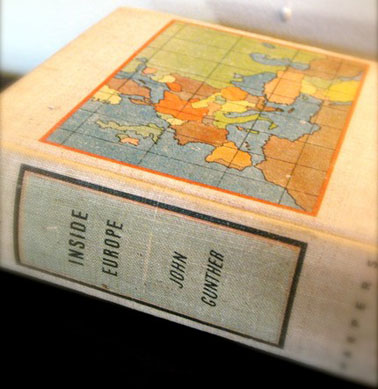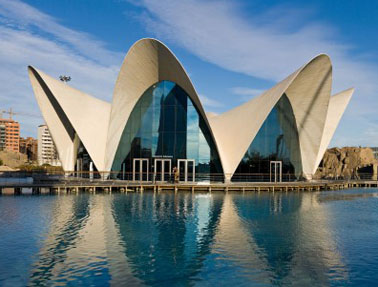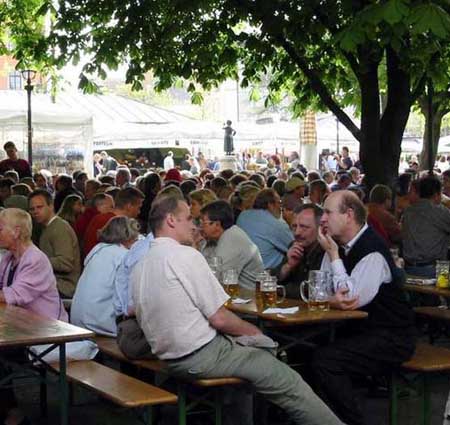We go to Europe for inside story (back for Hemingway and Gellhorn on May 28)
May 9th, 2012 | By Counterweights Editors | Category: In BriefThe American journalist John Gunther “grew up in Chicago and attended the University of Chicago” and then served from 1924 to 1936 with the London bureau of the Chicago Daily News. In the 1930s he published Inside Europe – the first of the “‘Inside’ series of continental surveys” that made him famous.
Some sources on the world wide web today claim that the first edition of this book appeared in 1936. But the first date in the (October) 1938 revised edition which we happen to have in the counterweights office library, through some now long forgotten accident, is 1933. And other sources on the net concur that the book was “first published 1933” – the year that Adolf Hitler became Chancellor of Germany.
The 1938 edition of Gunther’s Inside Europe also “begins with Hitler.” And, as explained in 2007 by the Australian writer Roger Sandall: “In the words of historian John Lukacs ‘1938 [even more than 1933] was Hitler’s year’. It saw the annexation of Austria, Neville Chamberlain’s capitulation at Munich, and the occupation of Czechoslovakia. Readers of Inside Europe’s October 1938 edition were able to follow these developments almost as they happened.”
In a note at the beginning of the 1938 edition John Gunther explained as well that his book “is written from a definite point of view … that the accidents of personality play a great role in history.” And he was alluding to Mussolini and Stalin along with Hitler, when he urged that: “The fact may be an outrage to reason, but it cannot be denied : unresolved personal conflicts in the lives of various European politicians may contribute to the collapse of our civilization.”
In the spring of 2012 events in Europe are once again at the centre of many thoughts in the English-speaking world – especially in the wake of the recent Greek and French elections. See, eg : “Those Revolting Europeans” ; “Happy Europe Day! Well, Not in Greece” (and today, btw, actually is “officially Europe Day, honoring a proposal by French Foreign Minister Robert Schuman on May 9, 1950, that led eventually to the formation of the European Union. Break out the deflated balloons!”) ; “Europe’s Post-Merkozy Gridlock” ; and “European Voters Have Rejected Austerity–So What Happens Next?”
It is a happy enough measure of some kind of progress since the 1930s that the European mood we confront in 2012 is not as deadly as the mood Gunther wrote about in Hitler’s year of 1938. As he explained then: “The controlling, the dominant factor … was fear, fear of war, fear of air raids in great cities, fear that London and Paris might meet the fate of Guernica and Barcelona, destroyed by German bombs [in the Spanish Civil War’s sad prelude to World War II]. Fear, funk, fear paralyzed what the New Statesman calls the ‘demo-plutocracies.’”

Philip Kaufman's "Hemingway & Gellhorn" will premiere out of competition in Cannes before its Monday, May 28 debut on HBO. It stars Nicole Kidman and Clive Owen as the titular pair.
It is arguably all too true that such things as “demo-plutocracies” are still too much with us – in Europe and North America and other parts of today’s much broader global village. Yet it is not German bombs but the German “obsession” with “austerity” (and German and other “fantasies of prosperity through pain,” in the words of the American liberal economist Paul Krugman) that seem to cast dark shadows across the once mighty continent now. And this adds up to a rather different European mood than the one John Gunther wrote about in the 1930s.
It is our duty here to announce that, in an effort to explore this rather different European mood in the spring of 2012 (at least a little), we will be closing the counterweights office down for the next two weeks, so that the full-time staff can attend an assortment of strategic conferences in Germany, Switzerland, Italy, France, Spain, Portugal, and the United Kingdom. The first reports on this intensive field work will be posted on counterweights during the week of May 28, 2012. No other fresh material will appear between now and then. (Oh and btw May 28 is also the date of the premiere of the HBO movie, Hemingway and Gellhorn, 9:00—11:40 pm ET/PT. And this will cover some of the same historical ground as John Gunther’s Inside Europe too!)
* * * *
Meanwhile, we just note two interim prospects for site visitors over the next two weeks:
(1) Some deep background for the counterweights spring 2012 European mini-tour appeared in a parallel piece posted on this site back in September of last year : “Toward European unity 20?? .. what are the politics of fixing the economy?”
This concluded with the thought that a Europe capable of dealing at last with its early 21 st century economic problems “just may have to be more into something that approximates at least George Orwell’s concept of ‘democratic Socialism’ (where Orwell was, in the words of his biographer Bernard Crick, ‘an English Socialist of the classic kind … left-wing, but also libertarian, egalitarian and …Â quite un-theoretical, almost anti-theoretical’). And while the Europe of David Cameron, Nicolas Sarkozy, Angela Merkel, and Silvio Berlusconi is not quite the same as the Texas of Rick Perry (say), it is still a long way from the kind of democratic socialist ideals that just might do the trick. “Socialism” as a saviour of “capitalism” is in fact a cunning irony of 20th century world history, in various senses – if only we hadn’t already forgotten most of the history involved.”
As one of our valued policy advisors has recently reminded us, developments since last September just may have brought us a little closer to this particular straw in the wind. Mr. Berlusconi has departed a while back, and now Mr. Sarkozy has been replaced by the French socialist François Hollande – a “57-year-old rural MP and self-styled Mr Normal, a moderate social democrat.”
(2) Some immediate short-term difficulties (and/or complications?) in moving ahead on any front of this sort are suggested in Jeff Rubin’s Toronto Globe and Mail article of today : “Without growth, there’s only one ending to euro debt crisis.” (And this has a lot to do with Canadian PM Stephen Harper’s favourite subject : “that it takes a lot of energy to fuel robust economic growth. What’s more, the most important source of energy for the global economy is oil.” Which makes us wonder, just a little and with only half our tongue in our cheek, will it finally be Big Oil that paves the way for capitalism’s socialist saviour? )






